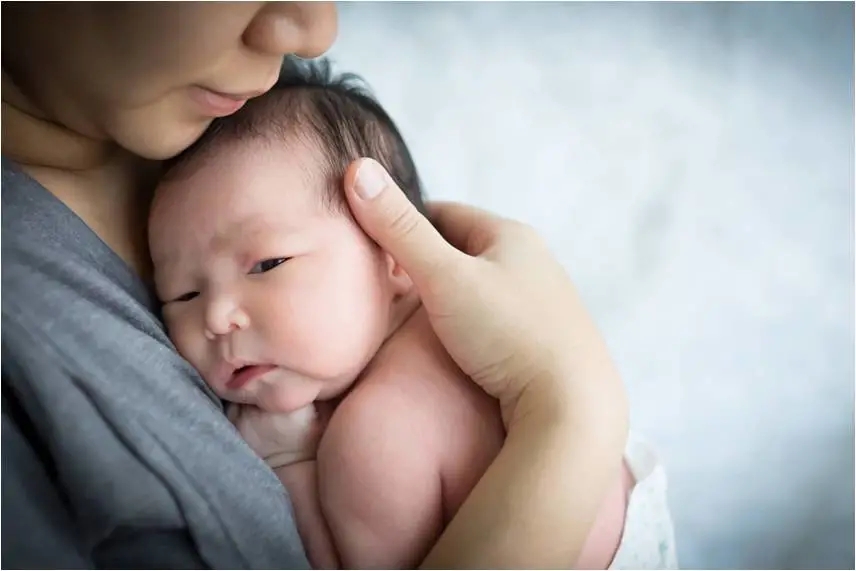这是 达医晓护 的第 3528 篇文章
我们成年人在一天中有三分之一的时间睡觉,而一岁内的小宝宝则最起码有60%-80%的时间在睡眠中度过。小宝宝的睡眠对于孩子的生长发育十分重要,拥有良好的睡眠规律和睡眠质量,加上充足的睡眠时间能让宝贝获得理想的生长发育。好的睡眠不仅能让孩子长高高,而且还有益大脑和免疫系统的发育。
但婴儿的睡眠需求会变,就像年纪大些的孩子和成年人一样。你的小宝贝比其他同龄孩子睡得多些或少些可能都正常。通常我们可以通过观察小婴儿的情绪和健康情况来判断孩子睡眠是否充足。如果小宝贝:
醒着的时候爱哭闹,可能需要更多睡眠;
醒着的时候看上去心满意足,可能她已经睡饱啦。
 那么,从 2 个月到 12 个月孩子睡眠会有什么变化呢?
那么,从 2 个月到 12 个月孩子睡眠会有什么变化呢?
总体来说,随着婴儿慢慢长大,他们
白天睡得少了
两次小睡之间醒着的时间也长了
晚上睡眠时长增加、中间醒的次数减少
总的来说睡眠需求逐渐减少。
下面让我们一起来了解一下12月龄以内各阶段婴儿的睡眠规律和特点:
2-3月龄
这个年龄的婴儿在白天和夜间都是睡睡醒醒的。大多数婴儿每24小时要睡14-17 个小时。
小婴儿的睡眠分成好几轮循环,每一觉一般持续50-60 分钟。每一轮的睡觉都分浅睡和深睡两部分。在浅睡眠阶段婴儿会动来动去、哼哼唧唧,而在深睡眠阶段则睡得较沉,很安静。在每一轮睡眠接近尾声时,小宝宝都会要醒一会。他们可能会哭闹,会需要安抚才能睡进入下一轮睡眠循环。
2-3 个月的婴儿慢慢开始形成白天夜间的睡眠规律,这就意味着他们往往会开始在晚上多睡些。
3 个月龄
小婴儿继续学习慢慢形成白天和夜间的睡眠规律。大多数婴儿每 24 小时仍要睡 14-17 个小时。
每一次睡眠循环还会越来越长,就是说中间醒来、需要重新入睡的次数慢慢减少。在这个阶段,有些婴儿可能在夜间经常有较长的睡眠 - 比如晚上一口气能睡上4-5小时。
他们的每一轮睡眠循环都包括:
浅睡 -这个阶段小宝宝很容易醒
深睡 -酣睡阶段,小宝宝睡得很香甜很安静、一动不动
睡梦 -小宝宝在做梦。
3-6月龄
在这个阶段,大多数婴儿每 24 小时要睡 12-15 个小时。
婴儿有可能开始有白天睡 2-3 觉、每觉不超过两小时的规律。
这个阶段晚上的睡眠时间越来越长。比如,到6月龄时有些婴儿晚上的觉可以长达 6 个小时。但你仍会发现宝宝孩子每晚会至少要醒一次。
6-12月龄
睡眠时间随着婴儿慢慢长大而减少。小宝贝到12月龄时每24小时很可能睡 11-14个小时。
大约从6月龄开始,大多数婴儿晚上睡眠的时间是一天中最多的。大多数宝宝在晚上6 点到10点之间就准备上床了。通常不到40分钟他们就会睡着,但有些婴儿花的时间长一些。
在夜间婴儿的睡眠循环和成年人越来越接近–也就是说晚上醒来的次数会减少。所以这就意味着小宝宝可能晚上不会吵醒你,或者你晚上起来照顾他的次数会减少。但还是有很多婴儿晚上会醒来,需要大人哄他们再入睡。有些婴儿一晚会醒 3-4 次。
在这个阶段,大多数婴儿白天仍会小睡2-3次,每一觉持续30分钟到两个小时不等。
 6-12月龄时期的发育会对宝宝睡眠造成什么影响?
6-12月龄时期的发育会对宝宝睡眠造成什么影响?
大约从6个月开始,婴儿发展的很多新的能力,也许会影响到他们的睡眠或增加哄睡他们的难度。
小宝宝们慢慢学会让自己保持醒着的状态,特别是当有趣的事情正在发生或当他们身处明亮喧闹的地方。
当婴儿学爬行时哄睡的难度也随之增加,你可能会注意到当孩子开始活动增多时他们的睡眠习惯会发生变化。
婴儿能意识到事物的存在,即便没在他们的视野里。小宝贝同样能意识到你的存在,当你离开卧室时孩子也许会叫或着哭闹。
分离焦虑是指当你不在身边时孩子觉得难过不安和焦虑。这也就意味着孩子不想去睡觉、在夜间晚上醒来的次数较多。随着宝宝慢慢长大,他们会逐渐克服这种焦虑。
 6-12月龄的夜间喂养是否要继续?
6-12月龄的夜间喂养是否要继续?
从6月龄开始,如果孩子的生长发育情况良好,可以考虑减少晚上喂奶次数,慢慢停止在晚上喂奶。不过,如果你不介意在晚上给孩子喂奶,那也就不要急着停止夜间喂奶。所以,这是灵活的,原则是怎么做对妈妈和宝宝最好最方便,宝妈可以自己决定。
还有一种叫过夜奶,指晚上10点到半夜12点之间喂的奶。有些家长发现过夜奶能帮孩子把睡整觉的时间延长到早晨。如果这适用于你和宝宝,那就给孩子喂一次过夜奶也是可以的。
 如果你觉得宝宝睡得不好怎么办?
如果你觉得宝宝睡得不好怎么办?
如果你担心宝宝的睡眠问题,不妨先花一周左右的时间跟踪孩子的睡眠情况。这能帮你理清头绪,直观地看清宝宝的睡眠有什么问题。
你可以画一张简单的表格分7栏记录一周每天的情况。然后把一天按小时分成块,将孩子睡觉的时间段涂上颜色色。坚持做至少最近5-7 天的记录。
一旦完成这张表格,孩子的睡眠情况一目了然:
宝宝何时入睡以及睡了多久
晚上宝宝会醒来几次
晚上醒来后需要花多长时间安抚孩子再次入睡。
你还可以记下你哄孩子入睡的方法、什么方法奏效、什么方法不奏效。
然后你可以把你表里的信息与以上文中有关婴儿睡眠普遍规律和特点做一下比较:
你孩子和其他同龄婴儿相比怎么样?如果你孩子醒着时哼哼唧唧、比其他孩子睡眠要少得多,那么他可能需要更多的睡觉机会。
超过6月龄后你孩子晚上醒来几次?如果醒来3-4 次或更多,你可能会感觉很累。你也许应该考虑改掉宝宝的一些睡眠习惯。
如果你决定去找医生来咨询宝宝的睡眠问题,带上你绘制的睡眠图表。
Infant sleep from 2 to 12 months
Babies need sleep to grow and develop well. But babies’ sleep needs vary, just as the sleep needs of older children and adults do.
Your baby might be doing well with more or less sleep than other babies the same age. Your baby’s mood and wellbeing is often a good guide to whether your baby is getting enough sleep. If your baby is:
wakeful and grizzly,they might need more sleep
wakeful and contented,they’re probably getting enough sleep.
How baby sleep changes from 2 to 12 months
As they get older, babies:
sleep less in the daytime
are awake for longer between naps
have longer night-time sleeps and wake less at night
need less sleep overall.
2-3 months:
At this age, babies sleep on and off during the day and night. Most babies sleep for 14-17 hours in every 24 hours.
Young babies sleep in cycles that last 50-60 minutes. In young babies, each cycle is made up of active sleep and quiet sleep. Babies move around and grunt during active sleep, and sleep deeply during quiet sleep. At the end of each cycle, babies wake up for a little while. They might grizzle or cry. They might need help to settle for the next sleep cycle.
At 2-3 months, babies start developing night and day sleep patterns. This means they tend to start sleeping more during the night.
Around 3 months
Babies keep developing night and day sleep patterns.Most babies still sleep for 14-17 hours in every 24 hours.
Sleep cycles also get longer, which might mean less waking and resettling during sleep. At this age, some babies might regularly be having longer sleeps at night – for example, 4-5 hours.
Their sleep cycles consist of:
light sleep, when baby wakes easily
deep sleep, when baby is sound asleep and very still
dream sleep, when baby is dreaming.
3-6 months
At this age, most babies sleep for 12-15 hours every 24 hours.
Babies might start moving towards a pattern of 2-3 daytime sleeps of up to two hours each.
And night-time sleeps get longer at this age. For example, some babies might be having long sleeps of six hours at night by the time they’re six months old.But you can expect that your baby will still wake at least once each night.
6-12 months: what to expect from baby sleep
Babies sleep less as they get older. By the time your baby is one year old, baby will probably sleep for 11-14 hours every 24 hours.
From about six months, most babies have their longest sleeps at night. Most babies are ready for bed between 6 pm and 10 pm. They usually take less than 40 minutes to get to sleep, but some babies take longer.
At this age, baby sleep cycles are closer to those of grown-up sleep – which means less waking at night. So your baby might not wake you during the night, or waking might happen less often.But many babies do wake during the night and need an adult to settle them back to sleep. Some babies do this 3-4 times a night.
At this age, most babies are still having 2-3 daytime naps that last for between 30 minutes and 2 hours.
6-12 months: other developments that affect sleep
From around six months, babies develop many new abilities that can affect their sleep or make them more difficult to settle:
Babies learn to keep themselves awake, especially if something interesting is happening, or they’re in a place with a lot of light and noise.
Settling difficulties can happen at the same time as crawling. You might notice your baby’s sleep habits changing when baby starts moving around more.
Babies learn that things exist, even when they’re out of sight. Now that your baby knows you exist when you leave the bedroom, baby might call or cry out for you.
Separation anxiety is when babies get upset because you’re not around. It might mean your baby doesn’t want to go to sleep and wakes up more often in the night. As babies mature they gradually overcome this worry.
6-12 months: night-time feeding
From around six months of age, if your baby is developing well, it’s OK to think about night weaning and phasing out night feeds. But if you’re comfortable with feeding your baby during the night, there’s no hurry to phase out night feeds.You can choose what works best for you and your baby.
A rollover feed is a late feed somewhere between 10 pm and midnight. Some parents find that rollover feeds help babies sleep longer towards morning. If this works for you and your baby, it’s fine to give baby a rollover feed.
Concerns about baby sleep
If you’re concerned about your baby’s sleep, it can be a good idea to track your baby’s sleep for a week or so. This can help you get a clear picture of what’s going on.
You can do this by drawing up a simple chart with columns for each day of the week. Divide the days into hourly blocks, and colour the intervals when your baby is asleep. Keep your chart for 5-7 days.
Once completed, the chart will tell you things like:
when and how much sleep your baby is getting
how many times your baby is waking during the night
how long your baby is taking to settle after waking.
You can also record how you tried to resettle your baby and what worked or didn’t work.
Then you can compare the information in your chart with the general information about baby sleep needs above:
How does your child compare to other babies the same age? If your baby is wakeful and grizzly and getting much less sleep than others, your baby might need more opportunities for sleep.
How many times is your baby over six months old waking up during the night? If it’s 3-4 times a night or more, you might be feeling very tired. You might want to think about phasing out some of your baby’s sleep habits.
If you decide you need to see a professional for help with your baby’s sleep, take your chart with you.
作者:澳大利亚墨尔本大学医学院儿科博士
百汇医疗(中国)儿科医师
蒋本然
部分图片摘自网络,如有侵权请告知,予以删除。
所有人名和地名均为化名,如有雷同,纯属巧合。




 扫码下载APP
扫码下载APP

 科普中国APP
科普中国APP
 科普中国
科普中国
 科普中国
科普中国